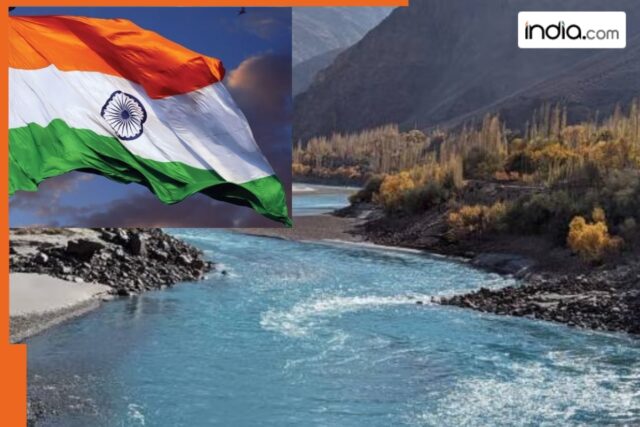With the treaty suspended, the government is assessing how best to harness the waters of the rivers.
New Delhi: The Government of India suspended the Indus Waters Treaty with Pakistan following the Pahalgam terror attack. Now, it is said that the govt will conduct a study on maximising the use of water from the Indus, Jhelum and Chenab, the three rivers that were previously allocated to Pakistan under the Indus Waters Treaty. The now suspended treaty gave Pakistan control over these rivers, while India had rights to the eastern rivers, Sutlej, Beas and Ravi.
Home Minister Amit Shah on Friday, April 25 chaired a high-level meeting in which the way forward regarding the treaty was discussed. The treaty was brokered by the World Bank which granted India the rights to 33 million acre-feet of water annually from the eastern rivers, while Pakistan had access to around 135 million acre-feet from the western rivers.
According to the World Bank-mediated agreement, India had exclusive rights over the eastern rivers, Sutlej, Beas, and Ravi while the western rivers, Indus, Jhelum, and Chenab were largely allocated to Pakistan.
With the treaty suspended, the government is assessing how best to harness the waters of the Indus, Jhelum, and Chenab. Jal Shakti Minister C R Patil, following the meeting, emphasised that the government is committed to ensuring that not a single drop of water flows into Pakistan adding that Prime Minister Narendra Modi has issued a slew of directives, and the meeting was held to follow up on them. Shah made several suggestions at the meeting for their effective implementation.
“We will ensure that not a single drop of water flows into Pakistan from India,” said Patil after the meeting while sources said that the government is working on a long-term plan to ensure the effective implementation of its decisions.
According to an official, the ministry has been asked to conduct a study to look at ways to utilise the water from the three western rivers. Experts have spoken about the lack of infrastructure that may limit India’s capability of completely utilising the water it gets from the decision to suspend the treaty.
“The real issue is with the western rivers where infrastructure limitations prevent us from immediately stopping water flows. We have several projects underway in the Chenab basin that will take five to seven years to complete. Until then, water will continue to flow to Pakistan by gravity. Once these are operational, India will have control mechanisms that currently do not exist,” said Himanshu Thakkar of the South Asia Network on Dams, Rivers and People (SANDRP) while talking to PTI.

















































